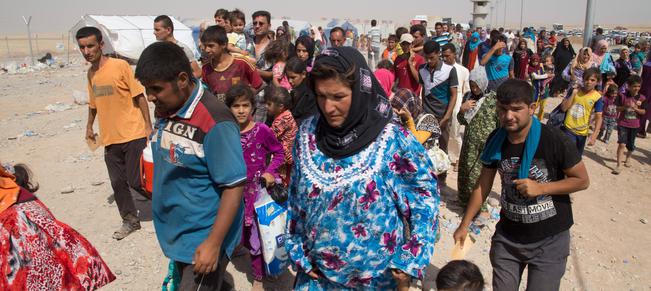The church in the Middle East needs to be involved in rebuilding towns if refugees are ever to return home, according to a relief charity.
Major General Abbas Ibrahim, head of Lebanon’s General Security directorate, said at the weekend that his security agency had planned the return of 25,000 Syrians and that another 25,000 had made their own way home.
The UN High Commission for Refugees estimates that there are still 976,000 Syrian refugees in Lebanon.
Michel Constantin, the regional director of Pontifical Mission, a church initiative which helps people in Lebanon, Syria and Iraq, told Premier returning home is not a reasonable possibility for many refugees who have fled from Syria to Lebanon because of the destruction that has taken place in their home towns. However, staying in the country they have fled to isn’t any better, he says.
Constantin has lived in Beirut, the capital of Lebanon, all his life and explained how the influx of people has taken its toll: “The presence of 2 million Syrian and Iraqi refugees – and Palestinian refugees – in Lebanon is considered a big burden on everything – on the economy, on the infrastructures, socially. And Lebanon is not a place where people can find refuge.”
However, he added: “The refugees will not return to their country, they will be in a miserable case, a miserable life and also the host community will face the same misery.”
Constantin said the answer was for the church and charities, such as Pontifical Mission, to rebuild the home towns and the communities, with a specific Christian attitude of prayer alongside:
“People they don’t need only humanitarian aid – they need spiritual aid. They need someone to pray for them and to help them, to regain confidence in their countries and their citizenship.
“This is the only way they will be actively participating in rebuilding their countries. So, I think the Christians in the Middle East, especially Iraq and Syria – they would need someone to make their voice heard. And the local church and the Christians can be that voice for them.”
By: Cara Bentley
Source: Premier






